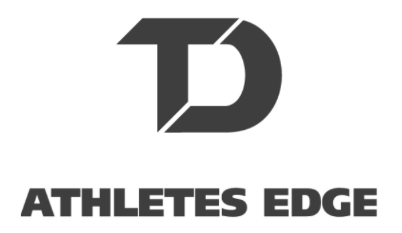STRAIGHT ANSWERS ON NUTRITION CHOICES

There isn't one perfect diet for all athletes - everyone is different. Here are some of the common nutrition traps that I hear/see athletes fall into:
1. Extreme Nutrient Exclusion Athletes need to avoid drastically or completely cutting entire healthy food categories, items, or nutrients from their diet without good reason. Common examples are blindly cutting dairy, red meat, all meat, salt, egg yolks, fats, or carbs.
The problem with blindly excluding food items from your diet is this sets an athlete up for deficiencies of key nutrients. This can lead to unnecessary fatigue, difficulty keeping/gaining muscle, excessive soreness, poor focus, undermined integrity of bone structure, or limited endurance during training or sport. The solution is simple: seek a wide variety of foods from high quality sources and don't make drastic changes to your diet based on opinion-based internet articles.
2. Relying too heavily on supplements Athletes are bombarded by the supplement industry. They are often tricked into believing that powders and pills can take the place of real food to support their athletic activities. This is a big mistake. A better approach for athletes is to seek real food options as often as possible/realistic. Then, identify high quality supplements to help them fill any gaps in their real food diet.
3. Ignoring or being unaware of toxic oils Toxic oils such as soy, corn, canola, "vegetable", cottonseed, safflower, and sunflower are an athletes worst enemy. They are the gasoline to the body's inflammation. Managing inflammation and maximizing recovery is key for athletes. This is impossible when consuming frequent/high amounts of these oils. Sore/stiff joints, excessive muscle soreness, and slowed injury healing are all results of regular consumption of these oils.
The best way for an athlete to minimize these issues is to avoid these toxic oils at all costs. Seek healthy oils like pastured butter, coconut oil, olive oil, peanut oil, or avocado oil.
4. Believing "carb-loading" is necessary for athletes Many athletes are taught that you can't eat too many carbs. Be careful of this. Everyone is different and has their own "carb sweet spot." It's important for athletes to be more "carb aware" and identity what their sweet spot is based on how they feel, activity levels/types, and performance. Seek high quality/intensity carbohydrates over more refined versions. This will set you up for better fuel source flexibility.
Like what you read?
Sign up now to get the latest tips and advice
Tim DiFrancesco, PT, DPT, ATC, CSCS spent 6 seasons as the Head Strength & Conditioning Coach of the Los Angeles Lakers and is the founder of TD Athletes Edge. He is nationally renowned for his evidence-based and scientific approach to fitness, training, nutrition, and recovery for athletes and fitness enthusiasts.
For training and nutrition advice, follow us on:
• Twitter http://twitter.com/tdathletesedge
• Facebook http://www.facebook.com/tdathletesedge
• Instagram http://instagram.com/tdathletesedge
• YouTube https://www.youtube.com/user/tdifranc1
• Sign up for our newsletter and follow our blog at http://www.tdathletesedge.com
ABOUT THE AUTHOR

Tim DiFrancesco, PT, DPT spent 6 seasons as the Head Strength & Conditioning Coach of the Los Angeles Lakers and is the founder of TD Athletes Edge. He is nationally renowned for his evidence-based and scientific approach to fitness, training, nutrition, and recovery for athletes and fitness enthusiasts.
